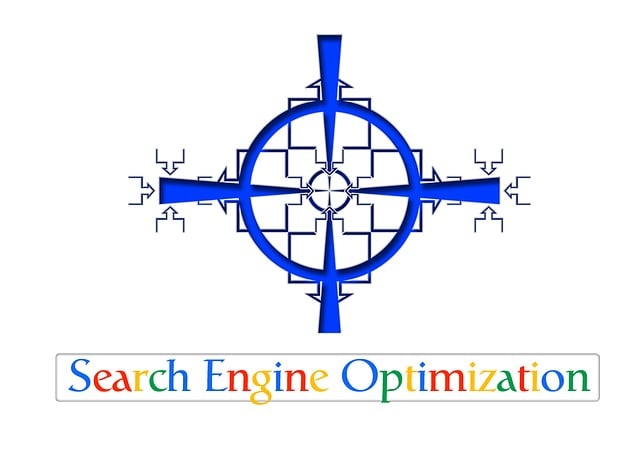An ecommerce search engine, powered by advanced algorithms, natural language processing, and machine learning, is a game changer in online retail. It guides customers through vast product catalogs, understands user intent, drives sales through increased discoverability and personalized recommendations, and ultimately boosts conversion rates. Best practices include robust keyword searching, filtering options, faceted searches, personalization, and visual search features. Implementing semantic search, precise product indexing, and leveraging customer reviews further enhances accuracy and relevance. Measuring performance through CTR, average position, and conversion rates allows for continuous optimization, ensuring the ecommerce search engine remains a dynamic tool for driving sales and customer satisfaction.
- Understanding the Ecommerce Search Engine: Its Role and Impact
- Key Components of a High-Performing Ecommerce Search Function
- Enhancing User Experience: Best Practices for Ecommerce Search
- Techniques to Improve Ecommerce Search Accuracy and Relevance
- Measuring Success: Evaluating the Performance of an Ecommerce Search Engine
Understanding the Ecommerce Search Engine: Its Role and Impact

In the dynamic landscape of online retail, an ecommerce search engine stands as a pivotal component, acting as the digital equivalent of a storefront’s sales associate. Its primary role is to guide customers through the vast sea of products, enabling them to quickly and efficiently find exactly what they’re looking for. By leveraging advanced algorithms and natural language processing, these search engines understand user queries on a deeper level, transcending simple keyword matching.
The impact of a robust ecommerce search engine extends far beyond facilitating customer satisfaction. It drives sales by enhancing discoverability, encouraging exploration, and ultimately increasing conversion rates. In today’s fast-paced digital era, where competition is fierce, an effective search engine can be a game changer, setting successful online stores apart from their peers.
Key Components of a High-Performing Ecommerce Search Function

A high-performing ecommerce search function is pivotal for driving sales and enhancing customer satisfaction. It starts with robust algorithms that deliver accurate, relevant results, quickly adapting to user queries and trending products. Beyond algorithms, intuitive design plays a crucial role in making search easy and engaging. Features like autocomplete suggestions, faceting filters, and visual search capabilities enable users to find what they want faster, increasing the likelihood of conversions.
Furthermore, contextual relevance is key. Integrating with machine learning, the ecommerce search engine should understand user intent behind queries, suggesting related products or offering personalized recommendations based on browsing history. Effective search also leverages rich product data, ensuring that each result includes essential details like pricing, availability, and customer reviews, providing a comprehensive view to inform purchase decisions.
Enhancing User Experience: Best Practices for Ecommerce Search

In today’s digital era, a seamless and intuitive user experience is paramount for ecommerce success. An effective ecommerce search engine plays a pivotal role in achieving this by enabling shoppers to effortlessly find products among a vast array of offerings. Best practices involve implementing robust keyword searching, allowing for both exact matches and synonyms to broaden results. Additionally, filtering options, faceted search capabilities, and auto-complete suggestions streamline the process, offering users quick access to relevant products.
Personalization is another key strategy. Leveraging user behavior data, search engines can deliver tailored results, recommending products based on past purchases or browsing history. This not only enhances user satisfaction but also drives conversions by presenting targeted options. Moreover, incorporating visual search features lets users find items by uploading images, catering to those who browse more visually. These practices collectively transform the ecommerce search experience, fostering a loyal customer base and contributing to robust online sales.
Techniques to Improve Ecommerce Search Accuracy and Relevance

To enhance the accuracy and relevance of an ecommerce search engine, several techniques can be employed. One key approach is to implement semantic search, which goes beyond keyword matching by understanding user intent and context. By leveraging natural language processing (NLP) and machine learning algorithms, the search engine can interpret queries more accurately, especially when dealing with synonyms, related terms, or even colloquialisms. This ensures that customers find products that truly match their needs.
Another effective strategy is to optimize product categorization and tagging. Well-structured categories and detailed tags help in precise indexing and retrieval. Search engines can then provide more relevant results by matching user queries with appropriate product attributes. Additionally, incorporating customer reviews and ratings into search algorithms can improve relevance, as these insights reflect real-world experiences and preferences. This multi-faceted approach ultimately enhances the overall ecommerce search experience.
Measuring Success: Evaluating the Performance of an Ecommerce Search Engine

Measuring success is a pivotal aspect of optimizing an ecommerce search engine’s performance. Key metrics such as click-through rate (CTR), average position, and conversion rates offer valuable insights into user experience and product discoverability. A high CTR indicates that search results are relevant and appealing to shoppers, while a low average position suggests room for improvement in both search algorithm precision and keyword optimization.
Conversion rates serve as a crucial indicator of an ecommerce search engine’s effectiveness in driving sales. By analyzing which queries yield the highest conversion rates, merchants can refine product listings and search algorithms to better align with customer intent. Regularly reviewing and adjusting these metrics ensures that the ecommerce search engine remains a dynamic and efficient tool for enhancing user engagement and boosting sales.
An effective ecommerce search engine is not just a tool but a strategic asset. By understanding its key components, implementing best practices for user experience, and continuously refining accuracy and relevance, online retailers can significantly enhance customer satisfaction and drive conversions. Measuring success through performance evaluation ensures that the ecommerce search function remains a dynamic element, adapting to user needs and market trends. Ultimately, an optimized ecommerce search engine fosters a seamless shopping journey, solidifying its role as a pivotal component in the digital retail landscape.
